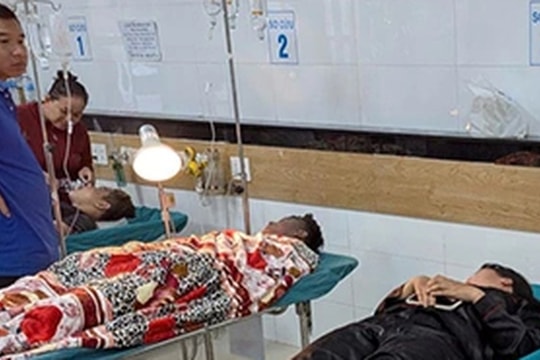.jpg) |
| Doctors at Chợ Rẫy Hospital in HCM City transfer interventional cardiology techniques to An Phước General Hospital in Bình Thuận Province. VNA/VNS Photo |
HCM CITY - With 16 per cent of all deaths occurring from cardiovascular disease during the last 20 years, it has emerged as the world's leading cause of mortality.
The creation of specialised cardiovascular units is a necessity due to the complexity of treating critically ill cardiovascular patients, according to Dr Trương Phi Hùng, deputy head of the Department of Cardiology, HCM City’s Chợ Rẫy Hospital.
Since the 1960s, it has been recognised that intensive cardiac care is essential, not only in patients with acute coronary syndromes, but also in other cardiovascular emergencies.
At a recent scientific conference of the hospital’s cardiovascular centre, Hùng said the coronary care unit had evolved into a cardiac intensive care unit. This unit was responsible for providing complex care requiring high levels of expertise and skills to treat and manage both cardiac problems and associated non-cardiac disorders.
He said: "At the Department of Cardiology, Chợ Rẫy Hospital, due to the increasing number of seriously ill patients and their complicated developments, the implementation of cardiovascular resuscitation has been introduced as an important model in patient care and treatment.”
The department had successfully applied and developed a cardiovascular resuscitation model with two resuscitation rooms and 25 beds. It had reached the highest level of cardiovascular resuscitation (Level 3), he said.
"These solutions have brought many benefits and achieved high efficiency in saving the lives of many severe and critical cardiovascular patients", Dr Hùng said.
According to the head of the Department of Pediatric Cardiac Surgery at Chợ Rẫy Hospital, Dr Lê Thành Khánh Vân, congenital heart disease (CHD) is an abnormality in the structure of the heart and large blood vessels during fetal formation and after birth.
About one per cent of all babies have some form of CHD.
Across the world, there are 1.5 million new cases of CHD annually, compared to 12,000–15,000 cases in Việt Nam.
Heart failure, arrhythmia, cyanosis, malnourishment, pulmonary hypertension, infectious endocarditis and abrupt death are among the progressions of congenital heart failure. According to the doctor, patients will have shorter life expectancies, lower quality of life and be a greater financial burden on their families and society.
Over 50 years, CHD management and treatment have been changing and improving, reducing the rate of complications and deaths, offering improved quality of life and increasing life expectancy of patients.
However, there is still a large number of CHD patients who have not received standard care and treatment and are waiting for medical intervention.
“We need to further develop genetic factors, tissue banks, unified data sets and increase the number of surgeries and cardiovascular interventions," Vân said.
"To safely and effectively manage CHD, it is necessary to increase the application of artificial intelligence (AI) in the detection during pregnancy, care planning and management. It is necessary to develop echocardiography, CT scans, 3D MRI and imaging.”
She also highlighted the importance of responding to and developing surgical techniques, cardiac catheterisation interventions such as next-step surgery, combined cardiovascular intervention surgery (Hybrid), paediatric cardiac support device surgery and paediatric heart transplantation. VNS
























